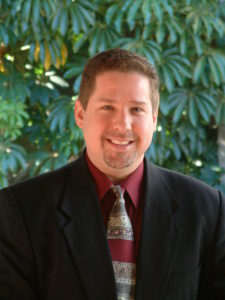Fraudulent Communication Studies?
Paul A. Creasman, Ph.D.
Professor of Communication, Chair of the Department of Communication Studies
Arizona Christian University
With thousands of colleges and universities migrating their teaching online in the wake of the COVID-19 outbreak, Tucker Carlson—television news pundit—mused last week about how that would affect education in this country: “An entire nation has just been shown that it’s possible to deliver higher education in an entirely different way,” he said. “You don’t have to drive to campus, buy textbooks, pay for room and board in order to get an education. You can do the whole thing online.” [1]
This was not news to anyone, like myself, who teaches online regularly. But what was surprising is what he said next. In short, he challenged the value of education under this new paradigm:
“You might also begin to wonder what a college degree is worth these days. An engineering degree from, say, CalTech will always have value. Medical school or law school might be worth it. But a communications degree from a mid-tier liberal arts school? Totally and utterly worthless. Maybe less than worthless, since it signifies such obvious mediocrity.”
Follow Carlson’s logic: because the form of education has changed—moving from face-to-face contexts to the online platform—it has become fraudulent. Excusing for a moment that he singled out communication as a discipline, Carlson sees education as being forever transformed because of the COVID-19. By removing the face-to-face component of education and replacing it with tech-driven isolation, you end up with something else entirely—something far less venerable.
I wonder if the church is next.
American churches (at least those with 10 or more members) have been asked to stop meeting. Stop holding communal services. Most are complying, opting for online services. I would venture to say that most churches have some kind of Worship/Tech Ministry in-house already, so mobilizing online services is not that great a step. But asking churches to stop physically gathering is altogether new.
Christianity Today encouraged churches to offer “remote services” as a way to “love the vulnerable and care for the world God loves.” [2] World Magazine documented the stories of several small churches that were able to set up streaming capabilities with a single smartphone. [3]
But whether churches can or can’t go online is not the real issue. Following Tucker Carlson’s thinking, by putting the church online, we risk changing the experience forever. What happens when the virus has passed? What happens when we receive the “all clear” sign? Will we return to “church as normal?” Will anyone even want to go to church anymore? Will it even be seen as important?
The practice of religion, along with education, journalism, and politics, were the four spheres of social influence that media critic Neil Postman examined in his now classic Amusing Ourselves to Death, his mid-80s book on television’s influence on our lives. Television’s predominant language of entertainment permeated all aspects of our lives: journalism became less about truth and more about what’s next; politics became commercialized; religion tossed out tradition in favor of the bright lights of show biz.
What about today? What is the language of the online world? Academics have been dancing around this question for decades now. Famed media critic McLuhan argued that the primary drive of the electronic age was identity—that is, the goal is to get noticed. [4] Joseph Walther’s theories of Social Information Processing and Hyperpersonal Perspective tell us we carefully craft our online image, editing ourselves to perfection. If YouTube has taught us anything about online life, it’s that maybe McLuhan and Walther are both right. Modern influencers are both outrageous (in all kinds of ways) and have carefully cultivated images. Kind of sounds like televangelism of the 1980s that Postman warned us about.
For now, church leaders seem less concerned with these big-picture, theoretical issues. The drive now is to just get online, fast. At least half of the World Magazine article cited above is devoted to “how to get started streaming if you’ve never done it before.” A lot of the potential pitfalls of the church online seem very far away.
Or as McLuhan said, they are probably right there in the rear-view mirror.
References
[1] https://www.foxnews.com/opinion/tucker-carlson-coronavirus-crisis-has-exposed-the-higher-education-establishment-charade [2] https://www.christianitytoday.com/ct/2020/march-web-only/walter-kim-nae-timothy-dalrymple-cancel-church-or-not.html [3] https://world.wng.org/2020/03/easy_streaming [4] McLuhan’s Wake. Kevin McMahon, dir. Primitive Entertainment/National Film Board of Canada, 2003.
